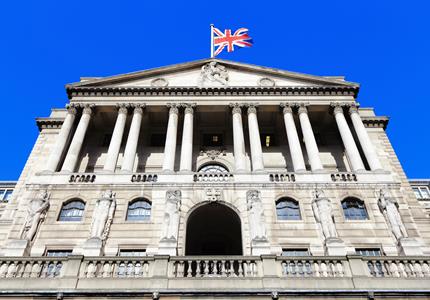

Weekly update - Light at the end of the tunnel, please let it not be an oncoming train!
This week's update comes from the cash management team
For many at the moment they can only be concerned about the here and now. However, markets, and especially the Bank of England (BoE), will be trying to look a little further ahead. And, if one is able to focus slightly further ahead, then things do look a little brighter.
A recent article in the Telegraph suggested that, if the UK Government’s plans are successfully implemented, then by mid-February all over 70s, the clinically extremely vulnerable and frontline health and social care workers will have been vaccinated. This, it is calculated, will reduce by 88% the number of potential avoidable deaths from Covid-19.
Once mortality rates start to fall and pressure on the NHS reduces then the next question will be, how quickly can restrictions be eased and so in turn how soon will life begin to return to normal? This of course will be a political decision, the easiest scientific answer would be to say that everyone stays locked down until the death rate is zero. However, the politicians will have more to consider, they will have to balance the social and economic benefits of life returning to normal, plus the willingness of the population to respect stringent limitations on their civil liberties at a time of reducing risk.
Undoubtedly the UK economy will get worse before it gets better, as Chancellor Rishi Sunak acknowledged recently, and the third lockdown has delayed the recovery. It is also clear that the economic damage done to the UK appears to be far greater than in the Eurozone.
Nevertheless, if we start to see a return to a more normal way of life after Easter, what is the outlook for the UK economy? The UK was early to authorise a vaccine and is making better progress in rolling it out, which suggests restrictions will be able to be relaxed earlier than countries in the Eurozone. The UK savings ratio in 2020 set new highs and, whilst this has to be balanced against the impact of the people who have lost their jobs, there is an argument that pent up demand, coupled with available funds, could result in a swift economic rebound in the UK.
Without wishing to be unduly optimistic, the other piece of economic good news is of course that a trade deal with the European Union has been agreed. There are those who say that the increased costs and disruption to cross Channel freight are comparable to a no deal outcome and so the deal has little value. However it has been generally well received by most sectors because it provides a degree of certainty. Furthermore the announcement from Nissan that the deal has secured the future of its Sunderland car plant can only be seen as good news.
No update from the cash team would be complete without a reference to negative interest rates.
UK money market rates have fallen over the last quarter, factoring in the possibility that official interest rates could be cut into negative territory for the first time. It is clear that one Monetary Policy Committee (MPC) member, Silvana Tenreyro, is in favour of negative interest rates. She believes that cutting rates further would boost UK growth and inflation. She is an external member of the committee; i.e. not an employee of the BoE.
BoE officials seem less keen. Governor Bailey has acknowledged ‘a lot of issues’ with negative rates. Ben Broadbent is worried about their impact on commercial bank profitability, which would, in turn, impact on their ability to maintain adequate lending and Andy Haldane believes that a sharp recovery could take place in the second half of the year anyway.
The MPC committee is made up of five BoE members and four externals. So with MPC members in the majority, current evidence suggests that negative interest rates will be avoided.
We are hopeful that the economic situation starts to improve and gathers momentum as the year progresses. If the MPC signals to markets that negative interest rates are not part of the solution to the current problems then it is possible that money market yields will start to improve slightly. We do not expect official rates to rise anytime soon but we think that there is some potential for market yields to rise from current levels as they adjust to represent a slightly firmer outlook.
Markets may also be starting to think along similar lines because the highest accepted bids for one, two and three month Treasury Bills at last week’s tender were all positive for the first time in recent weeks.
Maybe it really is light at the end of the tunnel…..


